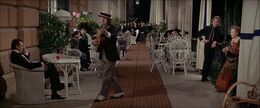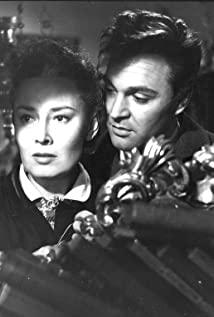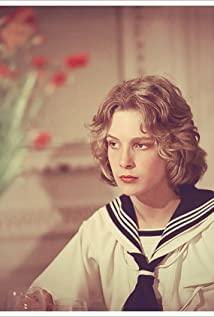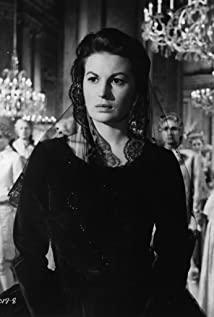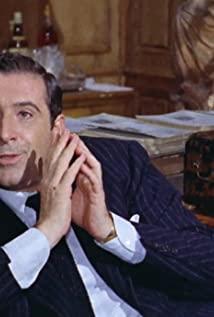I've heard of "Soulbroken in Venice" for a long time, and it originated from Bern Anderson's beauty. Today I finally remembered to read it, and immediately found a novel to read. The rhythm of the movie is slow and lengthy, and the novel is really brilliant. The description of the scene of the big break makes Venice an overhead and gorgeous background. In the dream, the god of wine dances wildly, gorgeous and charming, and the spirit of the man rots from the inside.
I don't think it's a pedophile or homosexual movie, it's a movie about pure sensuality.
What is Tanmei? Danmei is often interpreted as "BL" in popular culture, the love and eroticism between handsome men. How beautiful is it? The skin is whiter than snow, and the complexion is delicate, as if it will shatter when touched. Let the girl feel ashamed at first sight, how can there be such a beautiful, such a pure, such a perfect appearance in this world.
Danmei originally refers to aestheticism, "indulgence in beauty", crazy about beauty, immersed in beauty and even to the point of madness, everything in the world can be discarded, only the form of beauty and the appearance of beauty can be the survival of the beauty. nutrient.
From this point of view, I think "Soul Broken Venice" is a pure interpretation of danmei, how obsessed Asenbach was with making himself look back before his death, the more deeply he was obsessed with beauty. This feeling is not conveyed in the film. It is true that Anderson's image is very suitable, but people misunderstand that Asenbach is just a pedophile, and Tacchio is a sly teenager who sees through adults' thoughts.
Speaking of danmei, I think there are at least three classic representations of danmei. One is the idiot who is addicted to beauty represented by Jia Baoyu; the other is Narcissus in Greek mythology; and the other is the image of a beautiful boy in Japanese culture.
In "A Dream of Red Mansions", Jia Baoyu's love for young women and men can be understood as a kind of obscenity. Qin Keqing's judgment classifies this kind of sexual obscenity with Jia Lian's sexual lust, because they are essentially the same thing.
The similarities between Baoyu and Daiyu can also be understood by the appearance of funeral flowers, one is an idiot who is obsessed with beauty, and the other is a purple bead fairy who is pure and clean. How much energy and mind it takes to maintain and create beauty, then how empty and apathetic it will be after beauty is destroyed. Falling into a vast white land is really clean, and it is the fate of Danmei.
Let's talk about Narcissus. Narcissus' infatuation with beauty is for himself. The narcissist boy saw his face in the reflection, and stared at himself day and night, not eating or drinking, and narcissistic to death.
Narcissus' revelation of danmei lies in the fact that the subject of beauty is aware of beauty, and all danmei behaviors are tacit games rather than demands from one party to the other. Tacchio, of course, knew his own beauty, and even had a good grasp of his own posture: "His gait—whether the way of his upper body, the swing of his knees, or the way the foot in the white shoe was moving— —Extraordinarily graceful, light, and arrogant; he looked up and down twice when he entered the restaurant, and this childish shyness added to his charm."
The subject of danmei must die. Narcissus murdered while watching, Asenbach single-handedly rendered the theme of beauty into a heroic lyricism, and then died.
The beautiful boy in Japanese culture lives under the writings of Yukio Mishima.
Yukio Mishima's description of the male protagonist Kiyoshi Matsuda in "Spring Snow": "The thirteen-year-old Kiyoshi is too beautiful. Compared with other waiters, even if he is not biased, Kiyoshi's beauty is outstanding. His cheeks were white and rosy, and there was a delicate look between his brows, and those big eyes that were still full of childishness, radiating a piercing black light against the long eyelashes, were really gorgeous."
Qingxian died at the age of 20.
The beautiful boy can't live to the twilight of adulthood, and once he smells of a grown man, everything is over. Death alone is the only pure and proper end that guarantees the perfection of youth.
In the first half of "Breakthrough Venice", it is written: "He is weak and ill," Asenbach thought, "he may not live to old age."
The point, he ignored why he felt a sense of peace of mind when he was thinking so.
I think the author should think more clearly about the fate of the beautiful boy than I do.
Indulging in beauty is dying while obsessed. "Soulbroken Venice" is the perfect form, tangled in the meaning of the story, the characters, the details, and it's meaningless. Perfection is that the form is indeed a dazzling crystal. No matter how dazzled the audience is, only the author can solve the mystery.
View more about Death in Venice reviews






